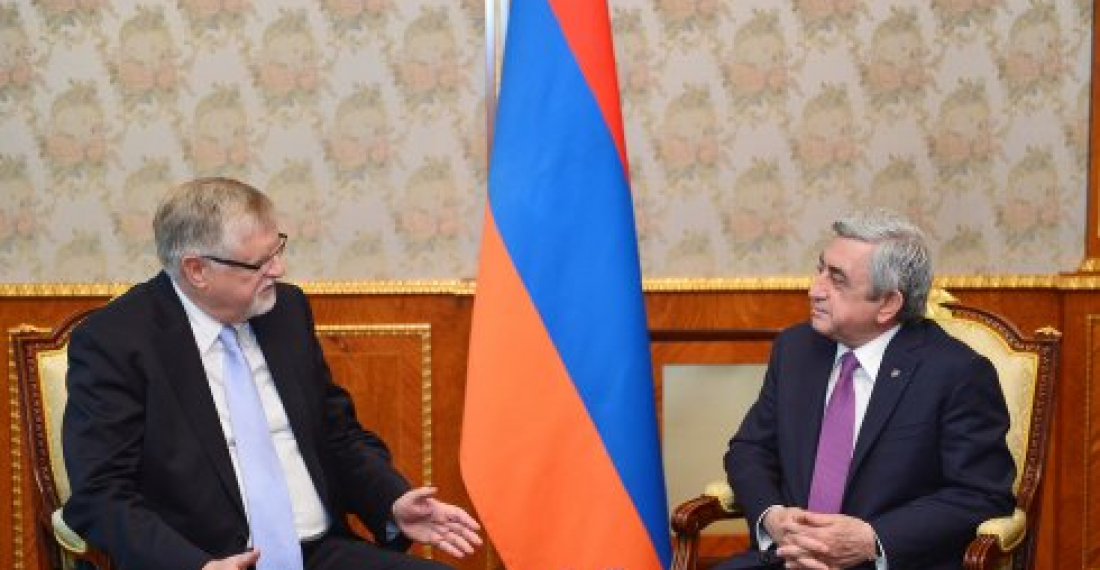European Union Special Representative (EUSR) for the South Caucasus, Herbert Salber, on Friday (21 October) met in Yerevan with President Serzh Sargsyan of Armenia. Discussions focused on the Nagorno-Karabakh conflict, and the current state of relations between Armenia and the European Union ahead of the fifth round of discussions between the two sides on a proposed framework agreement.
According to the press service of the Armenian president, President Sargsyan and EUSR Salber exchanged views on recent developments in the Karabakh peace process after the meetings in Vienna and Saint Petersburg and on the current situation.
According to the same source, the Armenian President noted that all previous meetings with the EU Special Representative were conducted in an open and frank atmosphere. "Serzh Sargsyan highly praised the EU commitment to establish an atmosphere of confidence between the parties of the Nagorno-Karabakh conflict in order to reach a peaceful resolution of the issue", the press service of the Armenian president reported.
Serzh Sargsyan presented Armenia's efforts made with the mediation of the Co-Chairs of the OSCE Minsk Group and reiterated that the Armenian side is ready to continue to make constructive steps for the benefit of peace and security in the region.
EUSR Herbert Salber noted that in the framework of his visit to Armenia, he is having meeting with the representatives of the civil society, including the residents of the border regions of Armenia.
At the meeting, the two sides also exchanged views on the regional developments.
Earlier, EUSR Salber had a meeting with the Armenian Foreign Minister, Edward Nalbandian.
source: commonspace.eu
photo: EUSR Herbert Salber met president Serzh Sargsyan of Armenian in Yerevan on Friday, 21 Ocotber 2016. (picture courtesy of the press service of the president of Armenia.






